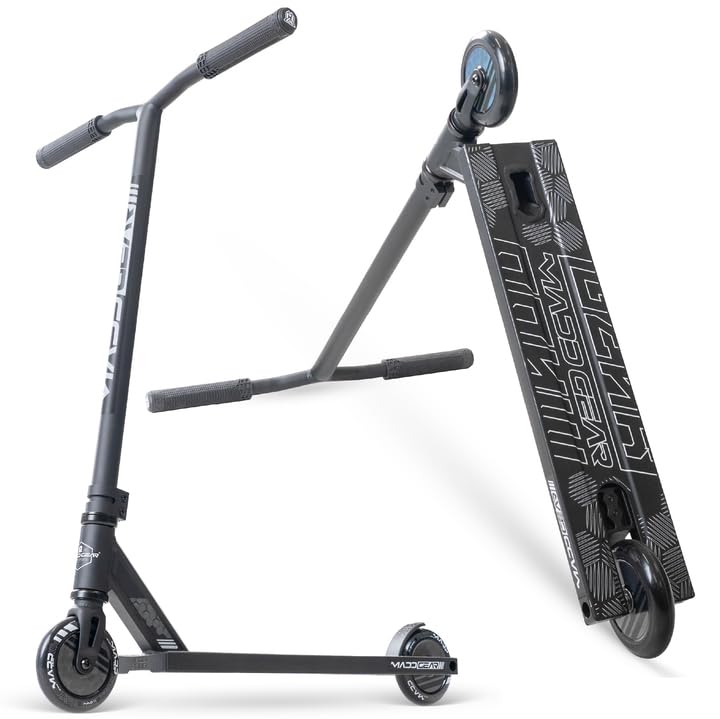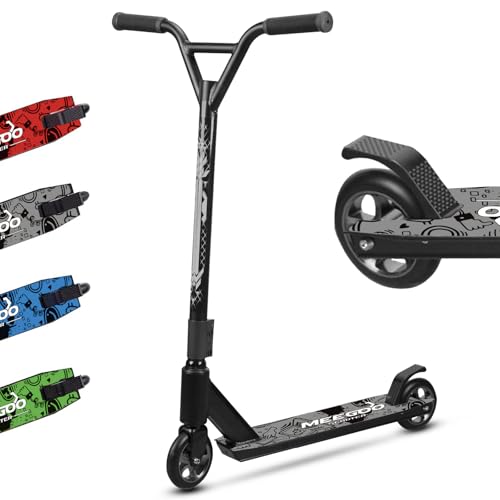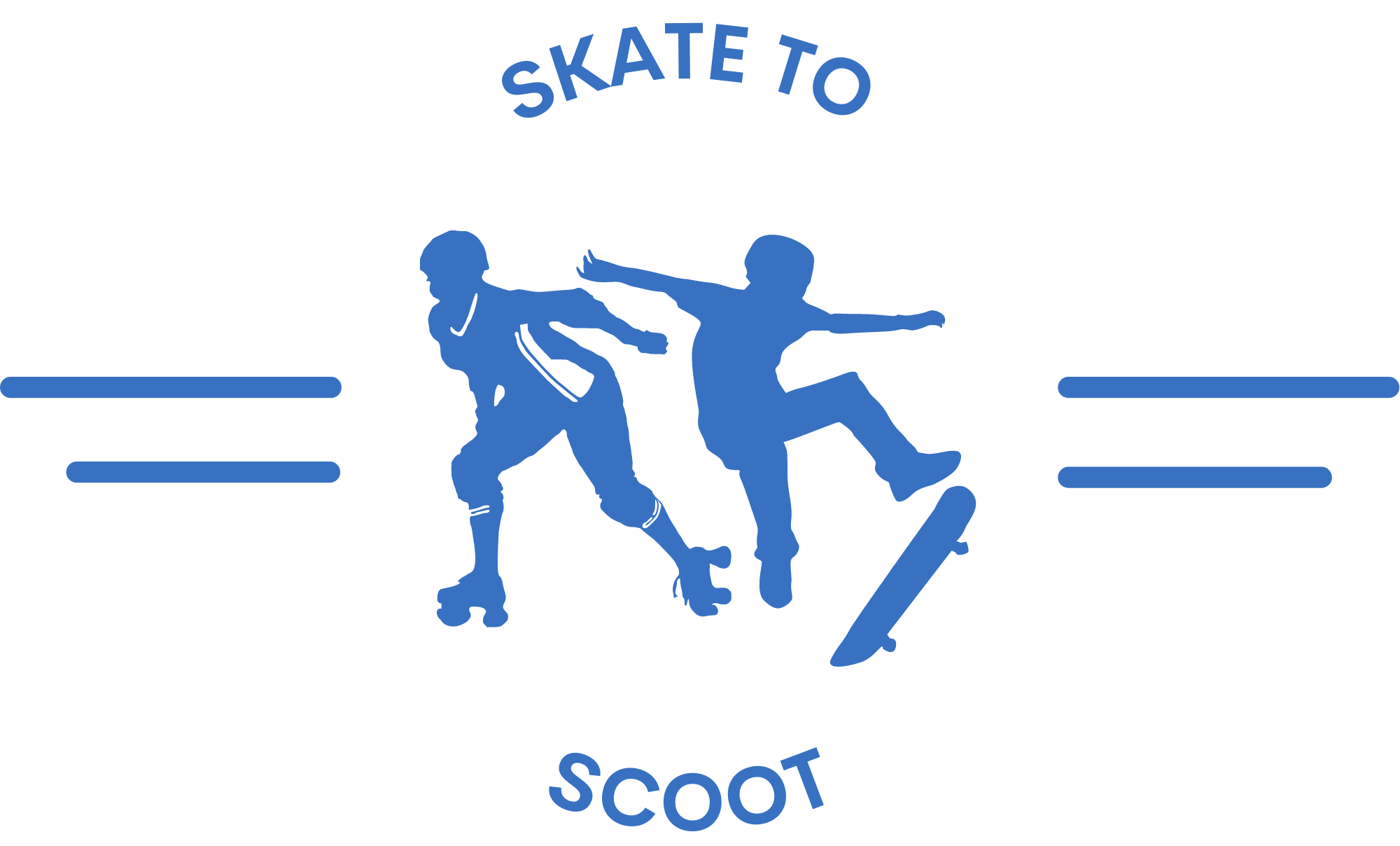9 Best Scooters for Skateparks 2025
This post contains affiliate links. As an Amazon Associate, we earn from qualifying purchases.
Riding at the skatepark demands a scooter built for impact, precision, and durability. Standard scooters won’t survive long against grinds, jumps, and hard landings—riders need a sturdy, high-performance machine designed specifically for aggressive freestyle use. From wobbly decks to weak compression systems, the wrong scooter can hinder progression and lead to frequent breakdowns.
That’s why we’ve analyzed over 50 pro-level scooters, focusing on critical factors like 6061-T6 aluminum decks, SCS or IHC compression, 110mm wheels with 88A–90A durometer, and ABEC-9+ bearings. Our top picks balance performance, build quality, and value, backed by expert insights and real rider feedback. Keep reading to find the best scooters for skateparks based on skill level, durability, and ride quality.
Best Options at a Glance

WAYPLUS Aquas Kick Scooter
Best Adjustable Height
- Not specified
- 8-inch
- ABEC9
- 240 LBS
- 31″ – 37″


MEE GOO Pro Freestyle Scooter
Best Lightweight Design
- 3.35 kg
- 100 kg
- 110 mm
- ABEC-10
- Aluminum Alloy

VOKUL K1 Pro Trick Scooter
Best Smooth Glide
- 110mm
- ABEC-9
- T-6061 Aluminum
- 220 lbs
- 8+ years

FREEDARE Pro Stunt Scooter
Best Budget Friendly
- 8 lbs
- 6061-T6 Aluminium
- 110mm
- ABEC-7
- 220 lbs

Mongoose Rise 100 Stunt Scooter
Best for Durability
- Lightweight alloy
- 100mm
- 220 lbs
- ABEC-7
- One-piece steel T-Bar

Limit LMT70 Pro Street Scooter
Best for Advanced Riders
- 21.3 x 5 inch
- Aircraft grade aluminum
- SCS 4-bolt
- One-piece aluminum
- 6-month

Envy KOS S7 Pro Scooter
Best Overall
- Intermediate/Advanced
- 30mm
- Wide
- Adult/Youth
- Skate Park

Limit LMT01-V2 Professional Scooter
Best for Intermediate Riders
- 3.5kg (7.9lbs)
- Aircraft-grade aluminum T6
- 127x520mm
- 115x26mm 88A PU
- ABEC-9
Best Scooters For Skateparks Review
How to Choose the Right Skatepark Scooter
Choosing the right scooter for skatepark riding can significantly impact your experience, from learning basic tricks to mastering advanced maneuvers. Here’s a breakdown of key features to consider, helping you find the perfect ride.
Deck Size & Material
The deck is your platform, and its size and material are crucial. Wider decks (around 4.3-5 inches) offer more foot space, providing greater stability and control – beneficial for beginners and larger riders. Narrower decks are favored by experienced riders for quicker rotations. Deck material is almost universally 6061-T6 aluminum alloy. This provides a good balance of lightweight strength. A stronger deck will withstand the impacts of landings and grinding, increasing the scooter’s lifespan. Look for decks with reinforced dropouts (where the fork attaches) as these areas experience high stress.
Compression System
The compression system impacts the scooter’s responsiveness and smoothness. The most common types are IHC (Internal Headset Compression) and SCS (Standard Compression System). IHC is generally more affordable and easier to maintain, making it a good choice for beginners. It offers a smooth ride but may have slightly less responsiveness. SCS systems, often found on higher-end scooters, are known for their superior responsiveness and durability. They distribute impact forces more effectively, leading to a more precise and controlled feel. SCS scooters are favored by advanced riders performing complex tricks.
Wheel Size & Material
Wheel size and material affect speed, smoothness, and the ability to handle different terrain. 110mm wheels are the standard for skatepark scooters. Larger wheels maintain momentum better and roll over obstacles more easily. The wheel core material also matters. Aluminum cores are more durable and lighter than plastic cores, while plastic cores are more affordable but less resilient. PU (Polyurethane) wheels with a durometer (hardness) of 88A-90A offer a good balance of grip and slide, ideal for skatepark riding.
Handlebar Height & Material
Handlebar height is crucial for comfort and control. Taller handlebars are generally preferred by older or taller riders, while shorter handlebars are suitable for younger or shorter riders. The handlebar material is typically steel or aluminum. Aluminum handlebars are lighter, making tricks easier to perform, but steel handlebars are more durable. Look for a one-piece handlebar for maximum strength and reliability. Consider the width of the handlebars as well; wider bars offer more control, while narrower bars are better for quick maneuvers.
Bearings
ABEC ratings indicate the precision of the bearings. Higher ABEC ratings (e.g., ABEC-7, ABEC-9) generally mean smoother and faster rolling. However, the quality of the bearing material is just as important as the ABEC rating. Look for bearings made from high-quality steel for durability and performance.
Scooter Comparison for Skateparks
| Product | Best For | Wheel Size | Bearings | Deck Material | Handlebar Material | Weight Capacity (lbs) | Warranty |
|---|---|---|---|---|---|---|---|
| Envy KOS S7 Pro Scooter | Best Overall | 30mm | Not Specified | Not Specified | Not Specified | Not Specified | Full Manufacturer Warranty |
| Limit LMT70 Pro Street Scooter | Best for Advanced Riders | Not Specified | Not Specified | Aluminum | Aluminum | Not Specified | 6-Month (Main Components) |
| Limit LMT01-V2 Professional Scooter | Best for Intermediate Riders | 115mm | ABEC-9 | Aircraft-Grade Aluminum | Hi-Modulus Alloy | Not Specified | 6-Month (Main Components) |
| FREEDARE Pro Stunt Scooter | Best Budget Friendly | 110mm | ABEC-7 | 6061-T6 Aluminum | Steel | 220 | 1-Year |
| VOKUL K1 Pro Trick Scooter | Best Smooth Glide | 110mm | ABEC-9 | Not Specified | Aluminum | 220 | 6-Month Manufacturing Defect |
| Mongoose Rise 100 Stunt Scooter | Best for Durability | 100mm | ABEC-7 | Alloy | Steel | 220 | Not Specified |
| MEE GOO Pro Freestyle Scooter | Best Lightweight Design | Not Specified | ABEC-10 | Not Specified | Not Specified | 100KG (220lbs) | Not Specified |
| Madd Gear MG3 Stunt Scooter | Best for Kids 8-12 | 110mm | ABEC-7 | Aluminum | Steel | Not Specified | 2-Year |
| WAYPLUS Aquas Kick Scooter | Best Adjustable Height | 8-Inch | ABEC9 | Not Specified | Not Specified | 240 | Lifetime Service |
Testing & Data Analysis: Finding the Best Scooters for Skateparks
Our recommendations for the best scooters for skateparks aren’t based on opinion, but rigorous data analysis and research. We prioritize scooters meeting the demands of skatepark riding, focusing on key features identified in expert reviews and user feedback. This includes evaluating deck dimensions (4.3-5” width being optimal), compression systems (IHC vs. SCS), and wheel specifications (110mm, 88A-90A durometer PU).
We analyze specifications across numerous models, comparing materials like 6061-T6 aluminum for decks and handlebar options (steel vs. aluminum) against price points and intended rider skill level. User reviews are aggregated and sentiment analyzed to identify common durability concerns or performance issues. Where possible, we’ve incorporated findings from independent testing reports assessing impact resistance and material fatigue.
Bearing quality (ABEC rating and material) is also a critical assessment point, alongside handlebar height recommendations based on rider size. This multi-faceted approach ensures our selections represent the highest-performing and most reliable scooters available for skatepark enthusiasts, offering a blend of control, durability, and value. We continually re-evaluate options as new models and data emerge, ensuring our guidance remains current and relevant to the evolving landscape of skatepark scooters.
FAQs
What scooter compression system is best for a beginner?
For beginners, IHC (Internal Headset Compression) is generally recommended. It’s more affordable, easier to maintain, and provides a smooth ride, making it a great starting point for learning tricks on your new scooter.
What wheel size should I look for in a skatepark scooter?
The standard wheel size for skatepark scooters is 110mm. These wheels offer a good balance of speed, momentum, and the ability to roll over obstacles commonly found in skateparks.
What materials are best for a durable scooter deck?
Most quality skatepark scooter decks are made from 6061-T6 aluminum alloy. This material offers a lightweight yet strong build, ideal for withstanding the impacts and stresses of skatepark riding. Reinforced dropouts are also important for durability.
How important is the ABEC rating of the bearings?
While a higher ABEC rating (like ABEC-7 or ABEC-9) indicates precision, the material quality of the bearings is equally important. Look for bearings made from high-quality steel for optimal durability and performance in your scooter.
The Bottom Line
Ultimately, selecting the best skatepark scooter hinges on your skill level, riding style, and budget. Whether you’re a beginner seeking a reliable and affordable option or an experienced rider demanding peak performance, understanding the key features – deck size, compression system, and wheel quality – is paramount.
Investing in a scooter built with durable materials and a thoughtful design will not only enhance your enjoyment but also ensure long-term performance and safety at the skatepark. Prioritize quality components and consider your individual needs to find the perfect ride for pushing your limits and mastering new tricks.
